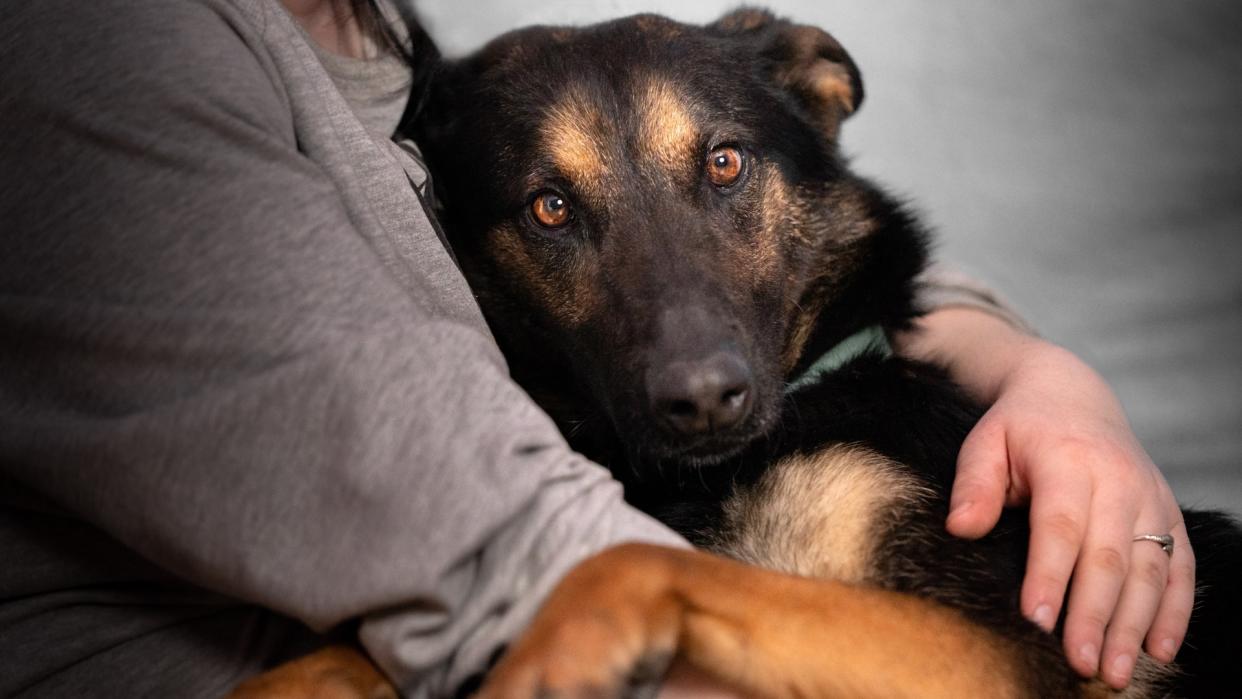Trainer shares six tips for helping your anxious dog recover after a stressful event — and number three is so important

Even if you know your dog super well, understand their triggers and have plenty of great systems in place, it's inevitable that they're going to experience stressful events throughout their life.
Whether you're trying to figure out how to handle dog fear periods with a puppy who's finding their new environment scary, or you have an older dog who finds certain situations difficult to deal with, it can be really helpful to understand what you can do as a pet parent to help your pup return to a state of calm.
And thankfully, expert trainer and behaviorist Renee Rhoades has shared a fantastic post to Instagram in which she shares some simple yet effective things you can try when your dog is feeling stressed.
So, grab a bag of long lasting dog chews (they'll come in handy for tip number three) and read on to find out more...
A post shared by R+Dogs | Dog Behaviorist & Welfare Advocate (@r.plus.dogs)
A photo posted by on
1. Set up the environment to encourage rest: "Your dog's nervous system will need time to recover," explains Rhoades. "Dark, cool spaces with a sound buffer (a low volume radio) can be helpful."
2. Aim to avoid additional stressors for at least 48 hours: "Give your dog's nervous system a break from additional hormonal spikes," Rhoades advises, going on to add that limiting additional stressors, no matter how minor, is really important in helping your dog to recover.
3. Encourage the trifecta of calm activities: Rhoades says that sniffing, licking and chewing offer the brain a cascade of positive hormones that help to alleviate stress. "Offer the TOC as much as possible."
4. Offer opportunities for engaging play: "Play is a great stress buster, but animals only play when the brain feels safe," Rhoades explains. "Encourage your dog, but don't force them to play." If they do feel like engaging, our guides to the best puppy toys and the best dog toys have plenty of great options to suit dogs of all ages and stages.
5. Use situational medication, if you have any: While we often think of medication as being used during an event, Rhoades (who is a former veterinary technician) says it can also be useful to help a dog recuperate after a stressful event as well.
6. Plan ahead for the next time: "Now is the time to make a plan for your dog as stressors tend to intensify rather than go away," says Rhoades, who recommends you hire a professional to help you.
It's inevitable that your dog will experience stress, even with your best attempts to prevent it. But the tips outline by Rhoades above can go a long way in helping them return to calm.
For more helpful advice on this topic, check out our guide to anxiety in dogs, which is full of lots of useful information to assist you in understanding the causes of anxiety, the various symptoms, and how it can be best treated.
For advice and guidance tailored specifically to your dog, please consult with your veterinarian or a qualified behaviorist.

Milo's Kitchen Chicken & Apple Sausage Slices
$9.99 at Chewy
Made with real chicken and apples, these deliciously wholesome snacks are made without artificial flavors or colors and are great as a snack or training treat. View Deal

